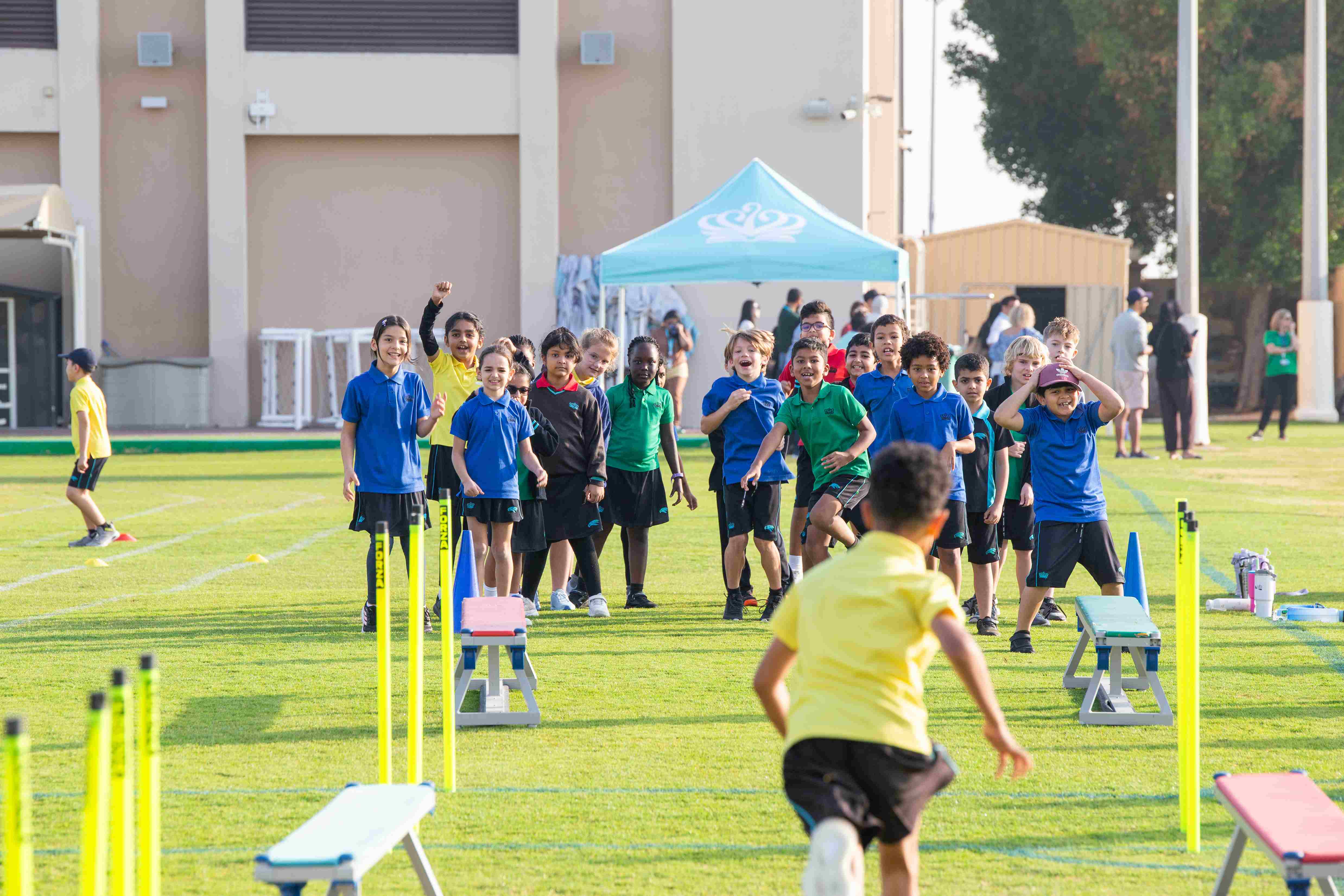Physical Education is far more than just learning how to play sports; it focuses on developing the physical, social, and emotional skills that empower students to lead healthy, active, and fulfilling lives.
Building skills for life
A high-quality Physical Education curriculum equips students with the knowledge, skills, and confidence to participate in a wide range of physical activities, both in and beyond school. Through carefully designed lessons and experiences, students develop physical competence, tactical understanding, and the ability to think critically and reflect on their performance. These are essential life skills that extend well beyond the sports field.
What we nurture at BIS Abu Dhabi
Physical Education at BIS Abu Dhabi nurtures:
✅Physical Literacy – building the motivation, confidence, and ability to move effectively and enjoy being active.
✅Social Development – promoting teamwork, leadership, respect, and communication.
✅Personal Growth – fostering resilience, self-awareness, and responsible decision-making.
✅Mental Wellbeing – supporting positive mental health through physical activity and meaningful participation.
Lifelong impact and Opportunities
We recognise the lifelong impact Physical Education can have on students' wellbeing. By developing a broad foundation of movement skills and positive attitudes towards physical activity, students are empowered to make informed choices about their health, fitness, and active lifestyles long after they leave school.
Physical Education also provides opportunities for leadership, coaching, and officiating, allowing students to take on a variety of roles within physical activity settings. Through participation in both competitive and recreational activities, students learn how to apply fairness, respect, and responsibility, essential qualities that support success both on and off the field.
Our Commitment to Inclusive Excellence
We are committed to providing every student with the opportunity to thrive in a safe, inspiring, and inclusive environment, in line with our vision of empowering and enriching the lives of young people through sport and physical activity.




.png?rev=1619813b30a347d9bc71977e2cfe09d2&hash=66B98CDC659BBF07EB36660B4381E1E7)